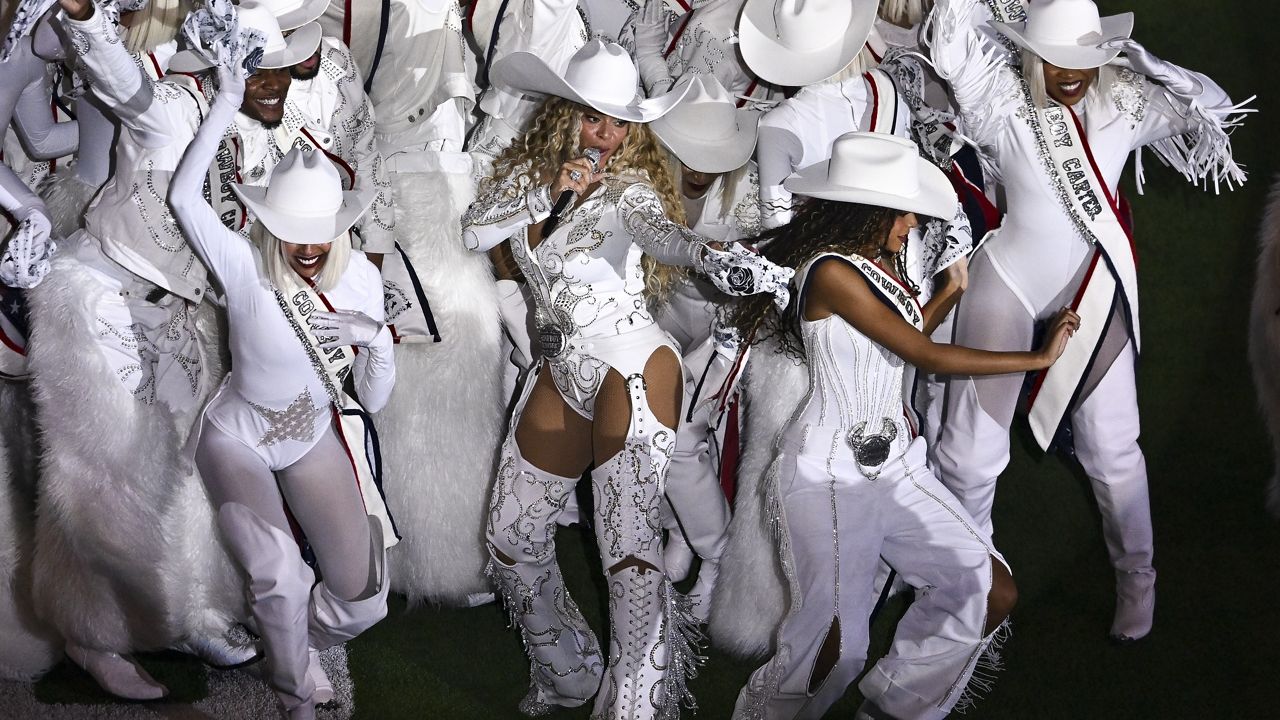TEXAS — The BeyHive is buzzing! Fans are flocking to the internet in outrage over the pricing of Beyoncé’s Cowboy Carter Tour tickets.
What You Need To Know
- Fans turned to social media to protest the price surging that occurred once they could finally make it into the actual site to buy tickets
- Tickets, not including VIP, were initially $71-$801, before Ticketmaster’s controversial dynamic pricing
- The dynamic pricing model raises prices with higher demand, lowers them with less to attract buyers
- Ticketmaster UK’s managing director said dynamic pricing reflects demand and that event organizers, not Ticketmaster, set the prices
The first round of presales for tickets to the singer’s highly anticipated tour went live on Tuesday at 12 p.m. local time. The ticket purchasing process, however, was reported by numerous fans to be problematic.
Many fans voiced their contempt with the ticket buying process, long wait times in queues, prices and lack of locations.
The tour was announced shortly after Beyoncé had a historic night at the Grammy’s, taking home awards for Best Country Album, Country Duo/Group Performance and Album of the Year.
Beyoncé fans swarmed the internet preparing for the process that is buying concert tickets for your favorite artist’s show in the 21st Century, which means signing up for presale codes, or hoping you patronize a company that partners with the tour, such as Verizon or Citi, to receive a unique presale code, and then crossing your fingers and hoping for the best.
The price surge upon reaching the ticket-buying map prompted many to express their frustration on social media after enduring the wait and queue. Tickets for the concert, not including VIP tickets, were initially $71-$801, according to a note that appeared on Ticketmaster.
But that was before Ticketmaster’s controversial dynamic pricing went into effect.
What is dynamic pricing?
The dynamic pricing model dictates that demand decides the ticket prices. When there is a higher demand, prices will increase, meanwhile the price of unsold tickets could be reduced to attract buyers, according to the Economic Times.
In an article with the Economic Times, the managing director of Ticketmaster UK, Andrew Parson, said dynamic pricing reflects demand and that event organizers, not Ticketmaster, set the prices.
“The price that you see on the Ticketmaster website is the price that the event organiser wanted that to be, including all fees, and that’s the only price that we will ever display,” said Parsons.
Parson shifted the blame to resellers, or secondary ticketing, that drive up prices.
In 2024, AEG Presents Chairperson and CEO Jay Marciano revealed that Taylor Swift opted out of the dynamic pricing model for her 2024 “Eras Tour.”
Ticketmaster and its hold on the live entertainment industry
In 2022, tickets for the U.S. leg of the “Eras Tour” went on sale. Overloaded presale queues on Ticketmaster caused the site to crash, upsetting fans and prompting an apology from both Ticketmaster and Taylor Swift.
The company offered a second opportunity for fans to grab the tickets they missed. The fallout prompted a lawsuit from the Department of Justice, along with 30 state and district attorneys general, against Ticketmaster and Live Nation in May 2024.
Live Nation owns an estimated 70% of Ticketmaster.
The civil antitrust lawsuit included a request for structural relief, seeks to restore competition in the live concert industry, provide better choices at lower prices for fans, and open venue doors for working musicians and other performance artists.
“We allege that Live Nation relies on unlawful, anticompetitive conduct to exercise its monopolistic control over the live events industry in the United States at the cost of fans, artists, smaller promoters, and venue operators,” said former U.S. Attorney General Merrick B. Garland. “The result is that fans pay more in fees, artists have fewer opportunities to play concerts, smaller promoters get squeezed out, and venues have fewer real choices for ticketing services. It is time to break up Live Nation-Ticketmaster.”
The suit alleges Live Nation-Ticketmaster locks concert venues into long-term exclusive contracts so that venues cannot consider or choose rival ticket sellers or switch to better or more cost-effective ticketing technology.
